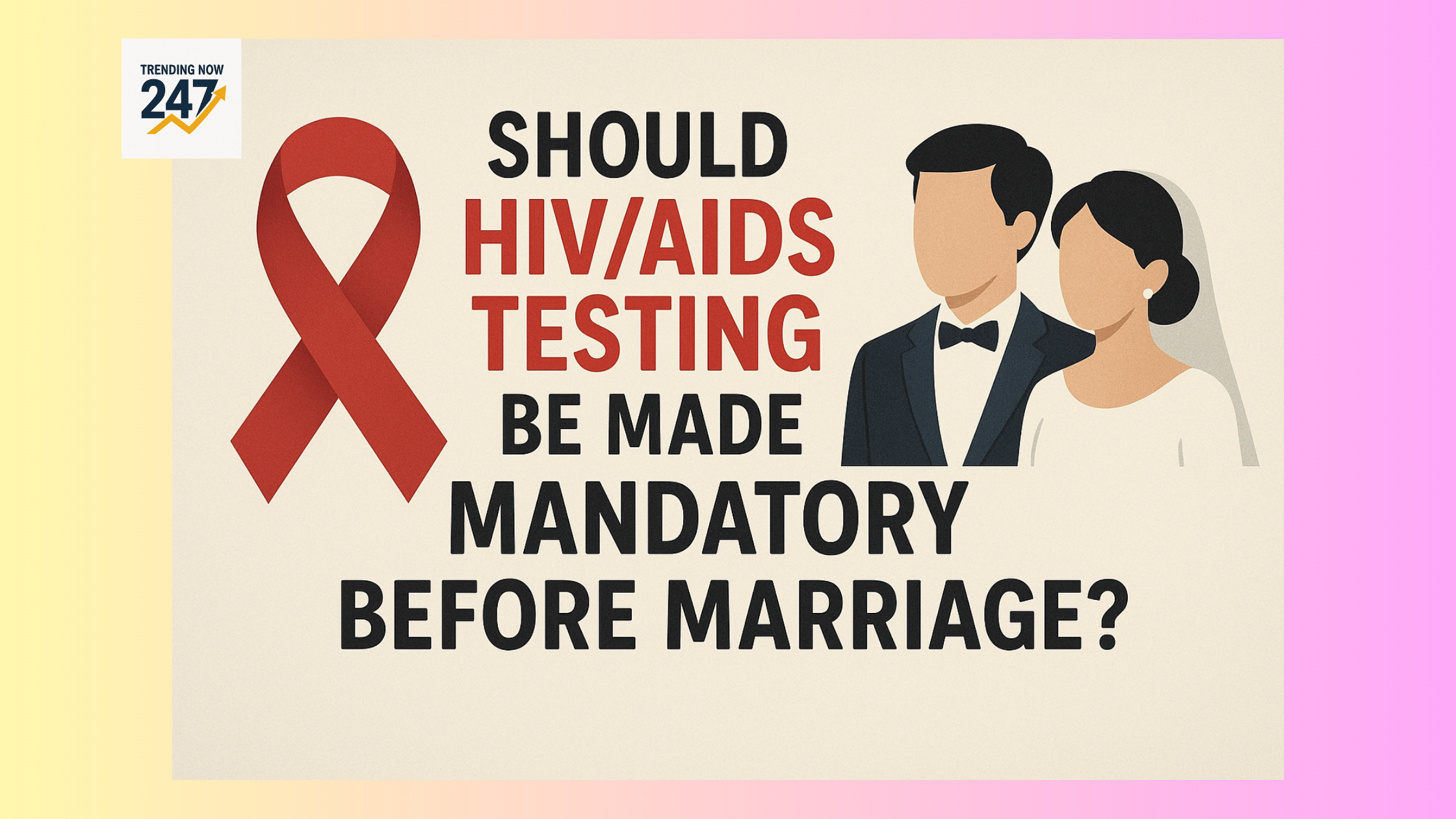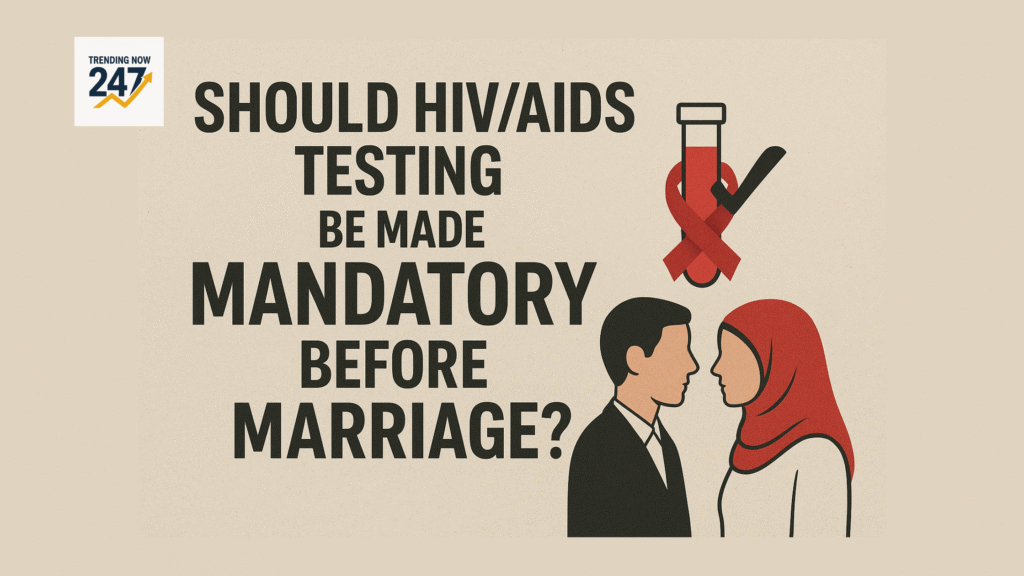“Should HIV/AIDS Testing Be Made Mandatory Before Marriage?”
Marriage is a big life decision. Along with love and trust, health is an important part of starting a life together When two people decide to get married, they are making one of the most significant commitments of their lives. But beyond love, trust, and compatibility, there’s another important consideration that often gets overlooked health. In recent years, there has been growing debate around whether HIV/AIDS testing should be a mandatory requirement before marriage.
HIV and AIDS
-
HIV stands for Human Immunodeficiency Virus. It attacks the immune system, making it harder for the body to fight infections.
-
AIDS (Acquired Immunodeficiency Syndrome) is the final stage of HIV infection when the immune system is very weak.
-
HIV spreads through unprotected sex, sharing needles, and from mother to child during pregnancy, birth, or breastfeeding.
-
There is no cure, but treatment (called ART — Antiretroviral Therapy) helps people live long and healthy lives and reduces the risk of passing HIV to others.
People Support Mandatory Testing Before Marriage
HIV (Human Immunodeficiency Virus) remains a global public health concern. While treatment has improved drastically, early detection is still crucial for managing the condition and preventing transmission. Proponents of mandatory testing argue that:
-
Protecting Partners: Knowledge about each partner’s HIV status allows for informed decisions before marriage. If one partner is HIV positive, both can take precautions.
-
Preventing Transmission: Early detection can help couples take precautions to prevent passing HIV to each other or to future children. With treatment, the chance of passing HIV to a baby can be almost zero.
-
Promoting Awareness: Mandatory testing could normalize conversations about sexual health, reducing stigma over time. Regular testing can reduce fear and stigma over time.
- Early Treatment – People who know their HIV status can start treatment sooner, which greatly improves health.
Some countries, such as certain states in Nigeria, Saudi Arabia, and parts of India, already require premarital HIV screening as part of their marriage procedures.
Concerns About Making It Mandatory
While the public health benefits are compelling, opponents raise serious concerns about personal freedoms and unintended consequences:
-
Right to Privacy: Mandatory testing may infringe on individuals’ medical privacy. Health information is personal; forcing people to share it can be seen as a violation.
-
Risk of Discrimination: In societies where HIV stigma is strong, a positive result could lead to rejection, social isolation, gossip or even violence.
-
False Sense of Security: A negative test today does not guarantee a lifetime free from risk HIV can be contracted later, making ongoing education just as important.
-
Ethical Issues: Medical ethics emphasize voluntary testing; making it compulsory could undermine trust in healthcare systems. Many doctors believe testing should be a personal choice, not a legal requirement.
Some People Disagree Testing Before Marriage
Not everyone supports mandatory testing. Some say:
-
It’s private: Your medical information should be your choice to share.
-
Fear of discrimination: In some communities, people with HIV face rejection or even violence.
-
False safety: A test before marriage does not mean you will never get HIV later.
-
Freedom of choice: Doctors believe health tests should be voluntary, not forced.
Possible Middle Path
Instead of making it compulsory, countries could:
-
Strongly encourage voluntary testing before marriage.
-
Offer free and confidential testing in all health centers.
-
Provide pre- and post-test counseling to help couples understand the results.
-
Run public awareness campaigns to fight HIV stigma.
Rather than strictly mandating tests, some experts propose strongly encouraged voluntary testing with comprehensive pre- and post-test counseling. This approach protects public health while respecting personal autonomy. Public health campaigns could also focus on making testing routine, accessible, and stigma-free so couples choose it themselves without legal compulsion.
The question of mandatory HIV/AIDS testing before marriage sits at the intersection of health, ethics, and human rights. While protecting partners and preventing transmission is vital, policies must balance these goals with respect for privacy, freedom of choice, and the fight against stigma. Whether or not laws change, what’s most important is fostering an environment where getting tested is seen as an act of care for oneself and for the person you love.
Make a Balance
Instead of making it a law, some experts think testing should be strongly encouraged but still a choice. Good counseling and health education can help couples understand why testing is important without taking away their right to decide.
HIV testing before marriage can protect couples and future children. But it’s also important to respect personal privacy and fight against stigma. The best way forward might be to make testing easy, private, and free so people choose it because they care about each other’s health, not because they are forced to.















Post Comment